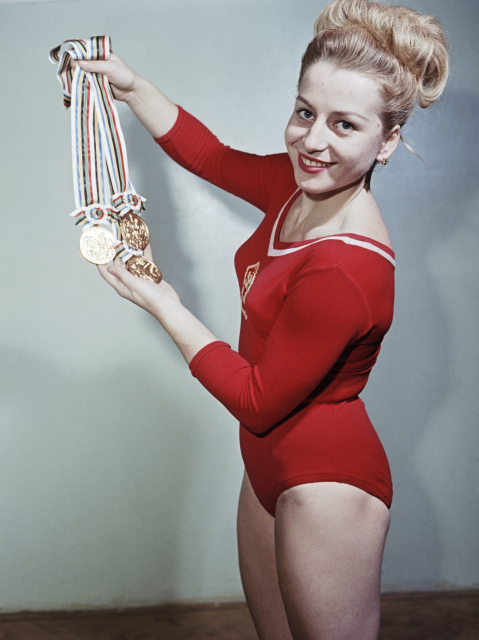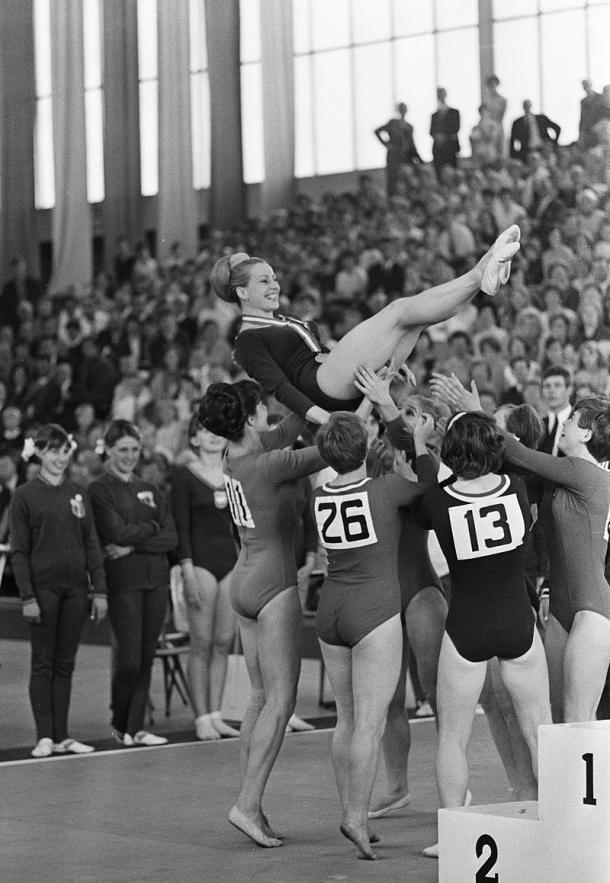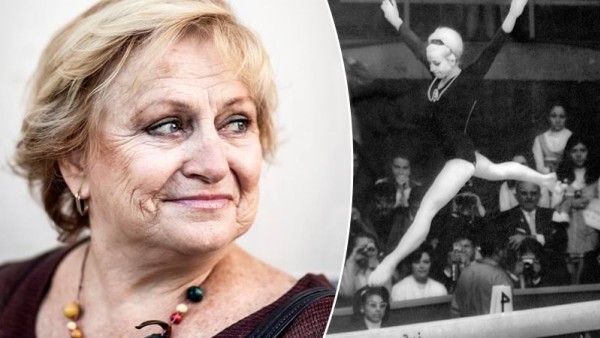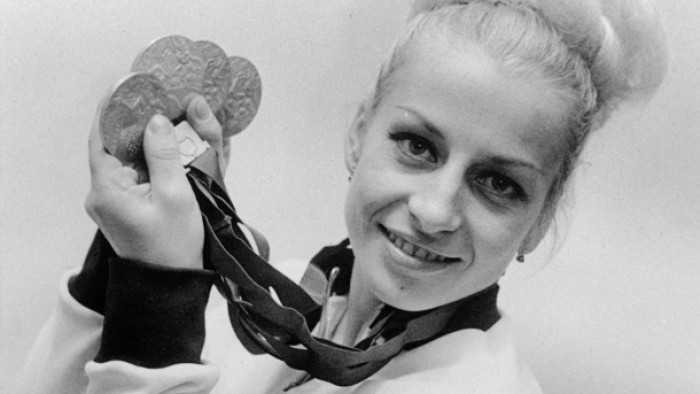Today, the world says goodbye to one of the greatest gymnasts of all time.
Věra Čáslavská, who represented Czechoslovakia on the national team from 1958 to 1968, which included three trips to the Olympic Games, passed away today at the age of 74. Čáslavská forged a legacy by becoming one of the most decorated gymnasts of all time and becoming a beloved figure in Tokyo during the 1964 Olympics, but it was her actions on the medal stand that got her labeled a traitor by her home government, and turned her into a hero to so many others.
Čáslavská's Olympic Success

Čáslavská first joined the Czechoslovakia National Team in 1958, where she helped the team win the silver medal at the World Championship. This success, coupled with her gold medal on the balance beam at the 1959 European Championships, allowed Čáslavská to be named to the Olympic Team for the 1960 Olympic Games in Rome. Czechoslovakia won a silver medal in the team event that year, and Čáslavská began taking on a bigger role as a gymnast in the years following those Games.
Coming off a silver medal in the All-Around in 1962, Čáslavská entered the 1964 Olympic Games in Tokyo as one of the top gymnasts in the world. Not only did she take home the All-Around title, but she won two other individual gold medals, and lead Czechoslovakia to a silver in the team event. Her four medal haul, as well as her charming personality, endeared her to the Tokyo crowd, who nicknamed her "the love of Tokyo" and "a celebrated beauty of the Olympic Game."
Between 1964-68, Čáslavská won 19 individual gold medals in major international events. She was the dominant force in European gymnasts, beating even the Soviet team, who seemed to have a stranglehold on global gymnastics prior to Čáslavská.
Čáslavská entered the 1968 Olympics in Mexico City as the heavy favorite in many events, and she furthered her dominance in the sport by winning four gold medals, including repeating as the All-Around Champion. To this day, she remains one of only two gymnasts to repeat as All-Around Olympic champion.
Čáslavská's Protest

While Čáslavská's greatness in the gym made her an international figure, her outspoken political nature turned her into an icon to many in the world. Čáslavská had been a public opponent of soviet-style Communism and the spread of influence of the Soviet Union into Eastern Europe. She joined other political figures in calling for democratic reforms in Czechoslovakia, angering Soviet leaders and pro-Soviet forced in her home country. She further angered the political status quo by signing the Two Thousands Words manifesto, which empowered progressive forces within Czechoslovakia and lead to the Prague Spring, a time of political liberalization within the country. Čáslavská's liberal protests lead her to be wanted by pro-Soviet forces, who called for her arrest. She spent weeks prior to the 1968 Olympics hiding in a remote mountain town.
Judging in the 1960's tended to favor Soviet gymnasts, further leading to Čáslavská's hardships. After appearing to win the gold medal on both the floor exercise and the balance beam, judges upgraded the preliminary scores of Soviet gymnasts, creating a tie for gold on floor and costing Čáslavská the gold on beam. At both medal ceremonies, Čáslavská lowered her head down and away during the playing of the Soviet National Anthem.
The people of Czechoslovakia, including Čáslavská's fellow athletes, applauded Čáslavská's actions, even going as far as to naming her Czechoslovakia's Sportsperson Of The Year in 1968. Her sporting federation, however, was displeased by Čáslavská's protest. Following the Soviet invasion in 1968 and the purge of liberal activists within the government, Čáslavská was banned from leaving the country and would not be allowed to participate in any public events. Czech officials refused to publish her autobiography, and tried to censor it's publication in Japan, though the Japanese release of her book appeared to be untouched.
Čáslavská Post Cold War

After the collapse of the Soviet Union and the fall of soviet-style Communism in Eastern Europe, Čáslavská's standing in the public dramatically changed. She was presented with the Olympic Order and began working as a judge in the late 80's. In 1989, she became a presidential advisor in questions of sports and social matters. She continued to maintain ties with Japan, who continued to see her as a hero long after her triumph in 1964. She was named the Honorary President of the Czech-Japan Association, and was on a short list to be named the Czech Ambassador to Japan. Instead, she was elected president of the Czech Olympic Committee in 1990, a position she held until 1996. In 1995, she was appointed to the IOC Membership Committee.
Following the tragic death of her ex-husband in 1993, Čáslavská began battling depression, which lead her to leave public life in 1997. She would rarely be heard from until 2007, when she began coaching and mentoring young Czech athletes. In 2010, 46 years after competing in the Olympic Games in Tokyo, she was awarded the Order Of The Rising Sun by the Emperor of Japan. She was diagnosed with pancreatic cancer in 2015.








































